Did you know that most people, despite having a vulva, are unfamiliar with the different parts and their functions? Today, we’re going to shed light on the two types of labia and explore their unique characteristics.
What is the Labia?
The labia are the fleshy folds located on the external female genitalia, also known as the vulva. The word “labia” comes from Latin and means “lips.” These folds play a vital role in protecting the vagina and urethra (the opening you pee from).
Two Layers of Protection
The labia come in two sets, offering double protection:
- Labia majora (outer lips): These are the folds on the outside of the vulva, often covered in pubic hair.
- Labia minora (inner lips): These are the folds closer to the vagina, starting at the clitoris and ending under the vaginal opening.
Knowing Your Body is Key
If you’d like to get acquainted with your labia (which we highly recommend!), you can use a handheld mirror for a closer look at your vulva and identify both sets of labia.
Vulvas come in all shapes and sizes, just like the people who have them. Researchers examined over 600 white women between the ages of 18 and 84 to determine what constitutes a “normal vulva” [1]. Their findings revealed a vast spectrum of what a healthy vulva can look like. Another study supporting this diversity included 44 women of various ethnicity and races [2].
Shapes of the Labia
As we mentioned earlier, vulvae are unique. However, there are some common shapes when it comes to labia:
1. Barbie
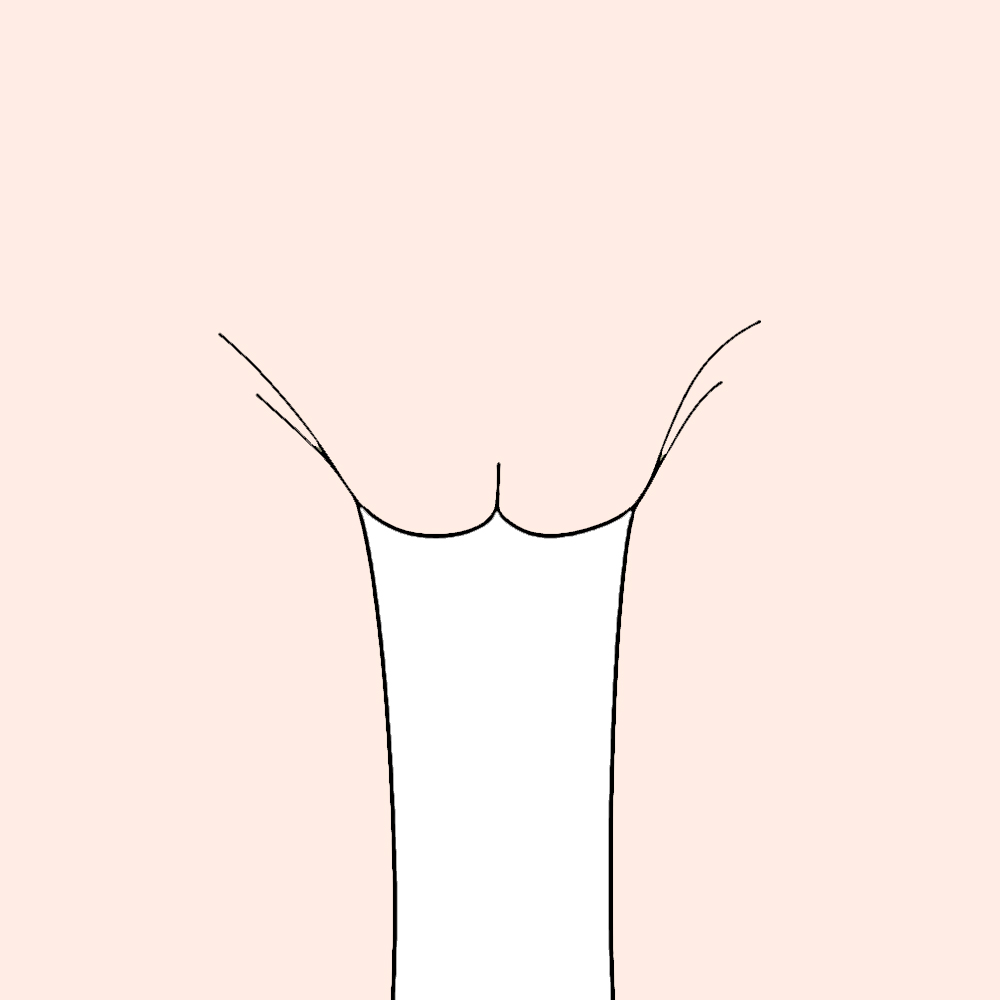
2. Puffs
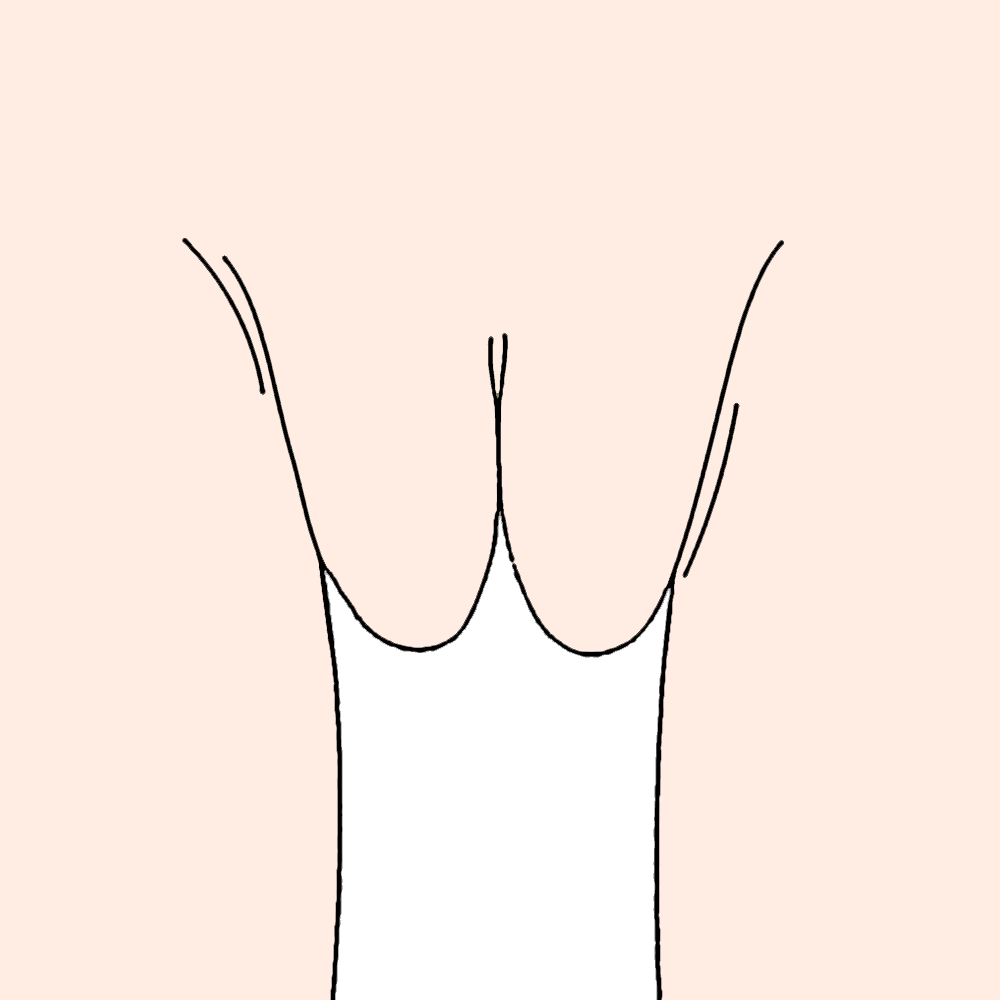
3. Tulip
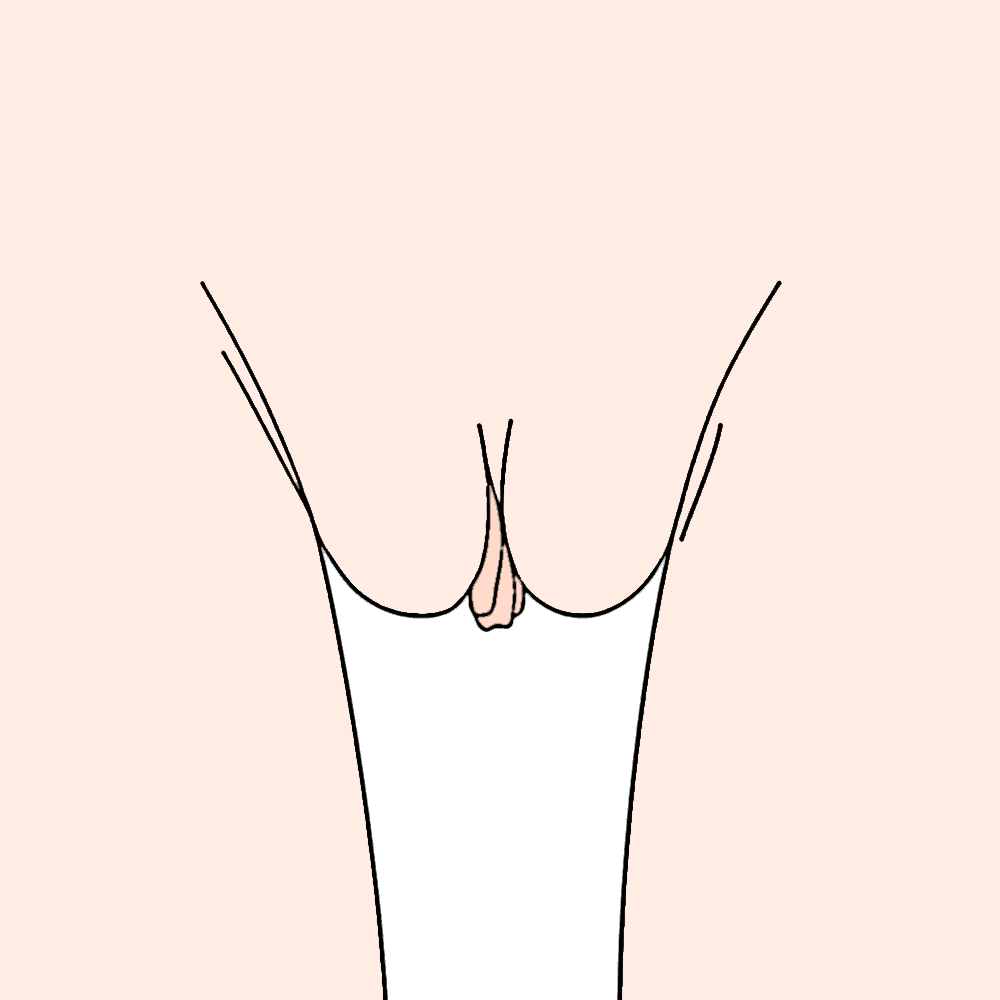
4. Horseshoe
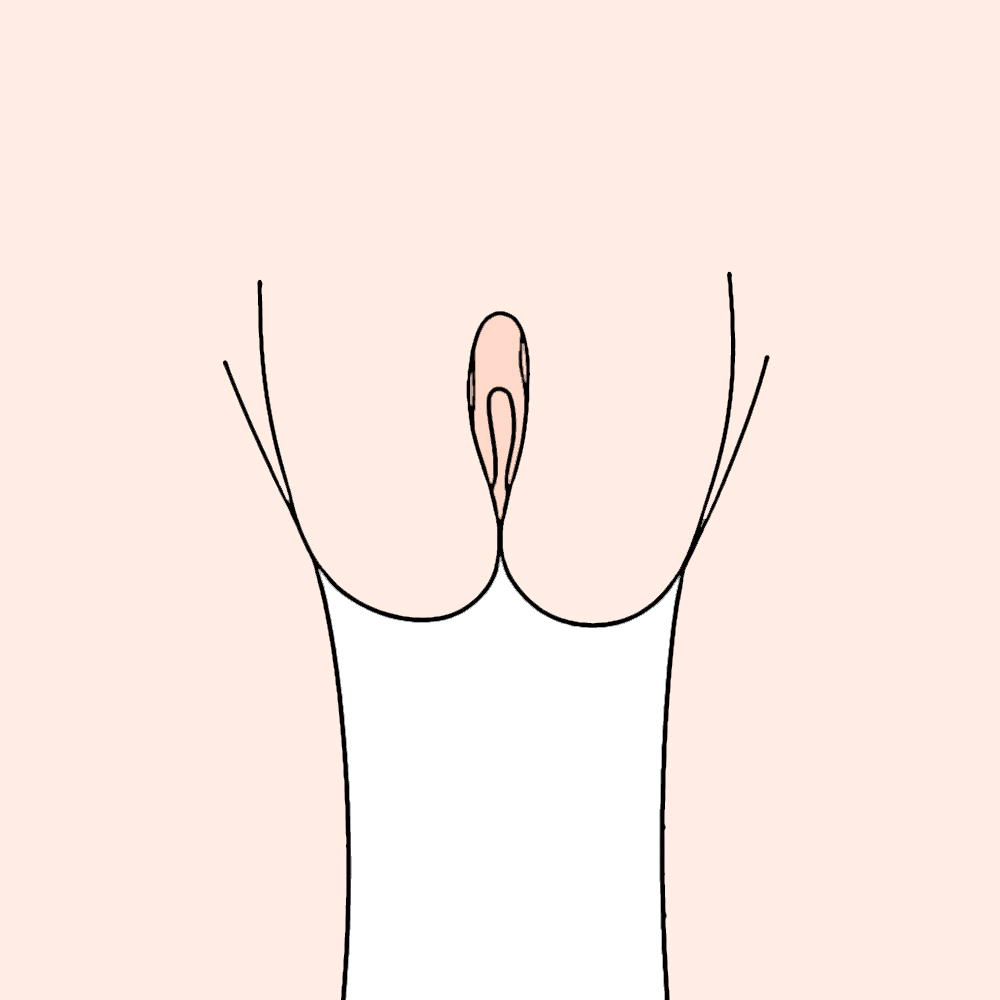
5. Kiss
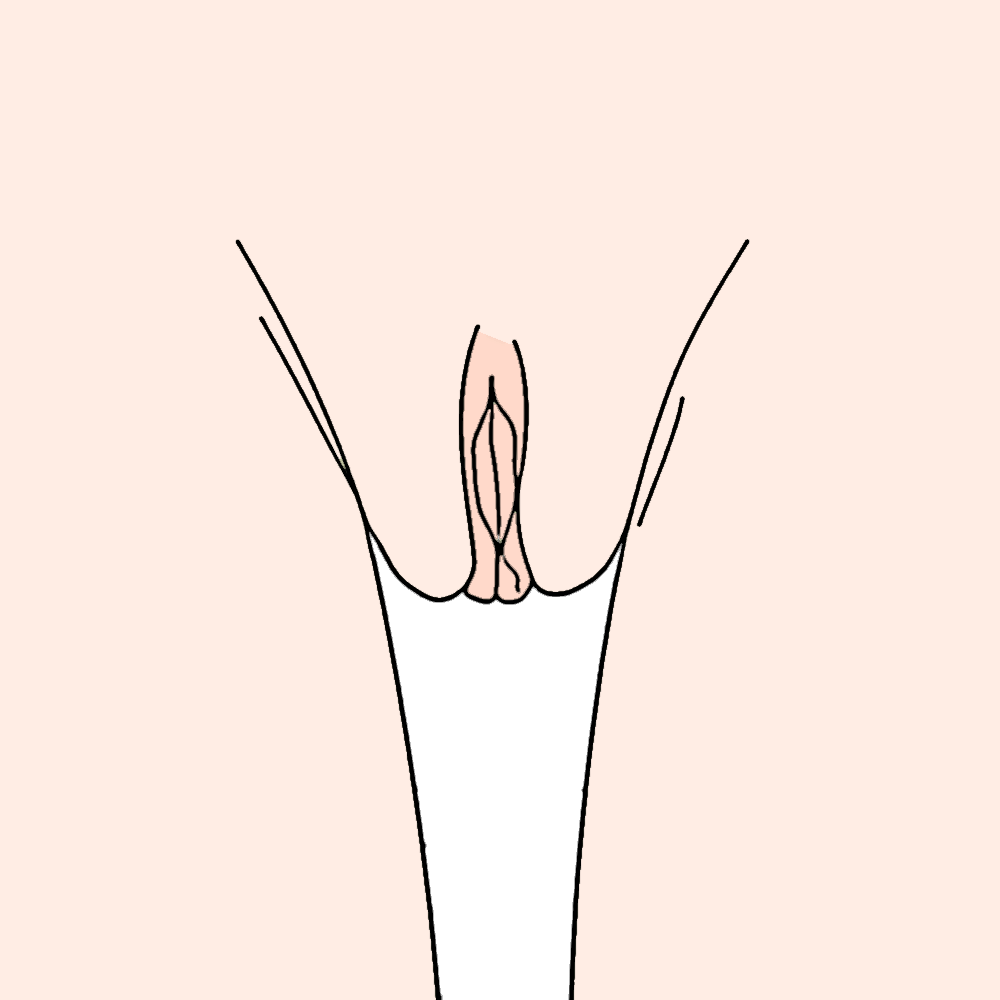
6. Curtains

Size, Color and More
The same study mentioned earlier that examined over 600 women found the following average sizes for labia [1]:
- Right labia majora: 7.9 cm (3.1 inches) long
- Left labia majora: 8.0 cm (3.1 inches) long
- Right labia minora: 4.2 cm (1.6 inches) long, 1.3 cm (0.5 inches) wide
- Left labia minora: 4.3 cm (1.7 inches) long, 1.4 cm (0.5 inches) wide
Remember, these are just averages. If your labia are larger, wider, shorter, or narrower, it doesn’t indicate a problem. As long as you don’t experience any pain or discomfort, your labia are healthy and normal.
Just like shapes, the color of your labia can vary from person to person. The American College of Obstetricians and Gynecologists states that in adults, the color of a vulva can range from pink to dark brown, red, or even black [3]. The color of the vulva can also vary depending on ethnicity.
It’s fascinating that the labia can actually change color. When aroused, they can swell up and darken as blood flows to the vulva area.
Beyond the Surface
Beyond the vulva, the vagina also has its own unique characteristics. While most vaginas have a similar shape, widening as they go deeper towards the cervix, their length can vary. Studies have shown that the average vaginal length is around 9.2 cm (3.6 inches) in women under 40 [4].
The vagina’s remarkable ability to change size and shape allows it to accommodate fingers, tampons, menstrual cups, penises, and even babies. Its position and length can also vary depending on your menstrual cycle.
Embrace Your Uniqueness
Every vagina and vulva is unique, and that’s what makes them beautiful. Don’t be afraid to embrace your body’s natural variations. If you have any concerns about your vulva or vaginal health, don’t hesitate to consult with a healthcare professional.
References
- Kreklau A, Vâz I, Oehme F, Strub F, Brechbühl R, Christmann C, Günthert A. (2018) Measurements of a ‘normal vulva’ in women aged 15-84: a cross-sectional prospective single-centre study. NCBI https://pubmed.ncbi.nlm.nih.gov/29940085/
- Brodie K, Alaniz V, Buyers E, et al. A Study of Adolescent Female Genitalia: What is Normal?. J Pediatr Adolesc Gynecol. 2019;32(1):27-31. doi:10.1016/j.jpag.2018.09.007
- Website, (2024, February). Vulvoginal Health. https://www.acog.org/womens-health/faqs/vulvovaginal-health
- Appelbaum, A. H., Zuber, J. K., Levi-D’Ancona, R., & Cohen, H. L. (2018). Vaginal Anatomy on MRI: New Information Obtained Using Distention. NCBI https://www.ncbi.nlm.nih.gov/pmc/articles/PMC6211784/
